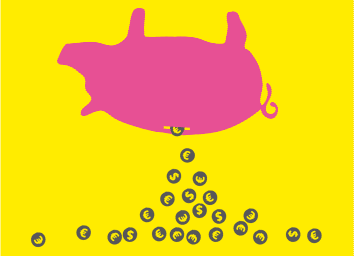|
|  |
9 dec: politiek cafe over de Wereldbank
A SEED - 07.12.2005 15:12
Is the World Bank Still a Player?
Kom naar het politiek cafe over de onortodoxe economische politiek van Wereldbank en over de negatieve gevolgen van sommige van zijn projecten in ontwikkelingslanden. Activisten en campagnevoerders uit Indonesie en de Filippijnen vertellen over hun ervaringen.

Daarna is er een practische discussie over mogelijkheden om in Nederland iets te doen dit soort projecten in de toekomst te voorkomen.
De discussie tijdens deze informele bijeenkomst zal worden veraangenaamd door de geopende bar.
Zie ook de engelstalige tekst hieronder
Lokatie: ISHSS, Prins Hendrikkade 189-B, Amsterdam
Datum: vrijdag 9 december
Tijd: 16:00
****************************************************
Is the World Bank Still a Player?
Political cafe
December - 9 - 2005
16.00
International School for Humanities and Social Sciences
Prins Hendrikkade 189-B, Amsterdam,
After more than 60 years of existence the World Bank still has an
enormous leverage on the economic and financial policies of countries
from the Global South. Projects, promoting orthodox economic
restructuring and socially and environmentally unsustainable
infrastructure development still make up the biggest bulk of
bank-financing. The price Southern countries have paid for WB
interference and subtle leadership has been quite high. Some examples of
countries that have been substantially affected by the WB are the
Philippines and Indonesia. Facilitated by the World Bank's “Mining Act”,
the Philippino government heavily uses military force and has committed
numerous human rights abuses as a means to silence out indigenous
communities' protests against the take-over of their land by mining
companies.
Why should you inform yourself about the role of the World Bank?
For raising its funds the World Bank depends on financial markets for up
to 80%. In order to gather funds for water-and land-privatization
projects, oil pipe-lines or dam constructions the Bank has to have
investors purchase their bonds. It is often the general public,
represented by institutions such as universities, pension funds and
city-halls which end up buying the risk-free World Bank Bonds. Thus it
is the constituents of public institutions that can ask their university,
city or pension fund to scratch WB bonds out of their investment
preferences until considerable changes by the Bank have been undertaken.
Join us for a talk and drink at 16.00 at December 9th to learn more about
the struggles of campaigners from Indonesia, Philippines and other
developing countries triggered by the World Bank's orthodox economic
policies. We can further discuss a number of simple but “unusual”
practical solidarity actions you can undertake in Netherlands.
Organizers:
A SEED Europe: 020 6682236, Filka Sekulova
FOEI: 020 6221369, Longgena Ginting
Student Union ISHSS
info: Filka Sekulova
 Website: http://www.aseed.net Website: http://www.aseed.net
|
| Lees meer over: globalisering vrijheid, repressie & mensenrechten | | aanvullingen | |

